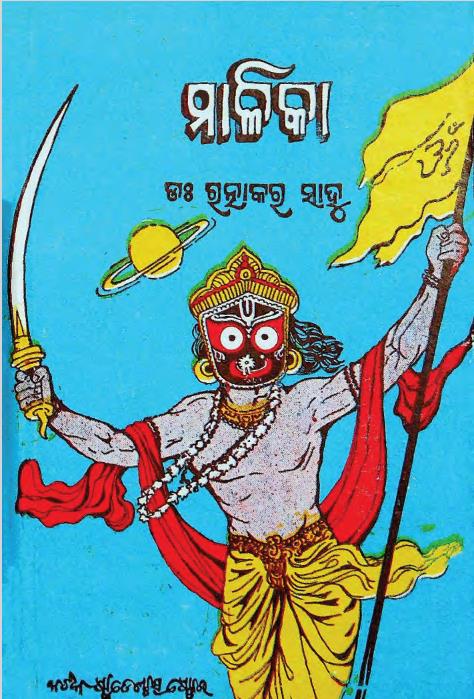Published in 1984 and reprinted in 2008, Malika by Ratnakar Sahu stands as a pivotal work in Odia literature, offering a rich tapestry of themes that resonate deeply with the cultural and spiritual fabric of Odisha. The book, characterized by its poetic expression and philosophical undertones, serves not only as a literary classic but also as an exploration of the sub-classics that shape our understanding of time, morality, and celestial predictions.
At its core, Malika delves into the concept of Kali Yuga, the age of darkness in Hindu cosmology believed to be marked by moral decline, social discord, and a departure from dharma (righteousness). Sahu’s narrative provides a profound commentary on the implications of living in Kali Yuga, where the values of humanity are tested and often laid bare. Through vivid imagery and poignant storytelling, he illustrates the struggles faced by individuals trying to find their footing amidst societal chaos. The richness of Sahu’s prose lies in its ability to encapsulate the essence of despair while infusing a sense of hope and resilience.
One of the most fascinating aspects of Malika is its incorporation of predictions and prophecies, particularly the anticipated arrival of Kalki, the prophesied tenth avatar of Vishnu. In Hindu belief, Kalki is foretold to emerge during the darkest times of Kali Yuga to restore cosmic order and dharma. Sahu deftly intertwines this narrative thread with the lives of ordinary beings caught in the whirlwind of their existential crises. The anticipation of Kalki’s return acts as a beacon of hope, suggesting that even in an era of darkness, renewal is possible, and justice will ultimately prevail.
Sahu’s portrayal of characters grappling with their moral choices amid the struggle between good and evil is particularly striking. The author’s use of allegory and metaphor deepens our understanding of the human condition, encouraging readers to engage with their introspections. In Malika, every character serves not only as a participant in the narrative but also as an embodiment of the moral dilemmas we face in our journey through life.
The sub-classical elements in Malika evoke a sense of nostalgia for traditional Odia folklore and mythology, presenting stories that are both timeless and relevant. The book’s ability to bridge the past and present allows readers to reflect on their own cultural heritage while confronting contemporary challenges. Notably, Sahu’s work inspires a dialogue about the importance of preserving cultural narratives that offer insight into societal evolution.
Moreover, Malika is a testament to the enduring power of literature in addressing the complexities of human existence. It challenges readers to contemplate the cyclical nature of time and the possibility of redemption in a world that often seems plagued by negativity. As such, the work holds a mirror to society, urging collective reflection and action.
Books Info
| Books name | Malika / ମାଳିକା |
| Author | Ratnakar Sahu, Ed. |
| No Of pages | 138 |
| Publisher | Sri N.P. Mishra |
| Publication | 1984, 2008 7e. |
| Printed At | Sahoo Computer Unit & Print-O- Grapics |
| Distributor | NA |

